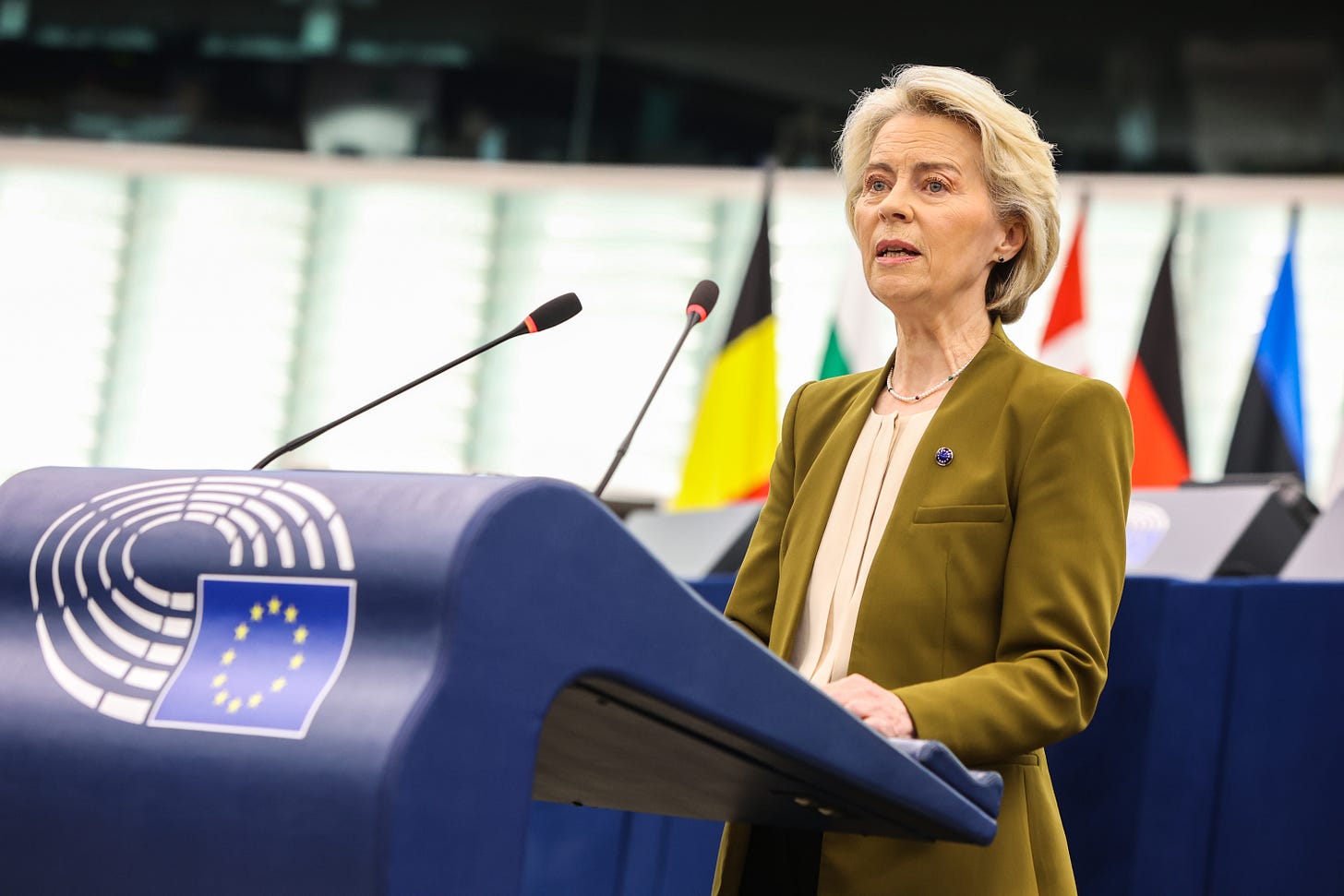🇪🇺Ursula von der Leyen's State of the European Union Speech (Transcript)
The annual 'State of the European Union' speech took place on Wednesday 10 September, but what did European Commission President Ursula von der Leyen say to European citizens across the continent?

👋Hey guys, Julien here. The French Dispatch is a reader-supported publication, and both our coverage of current affairs as well as our ability to bring you more n…



